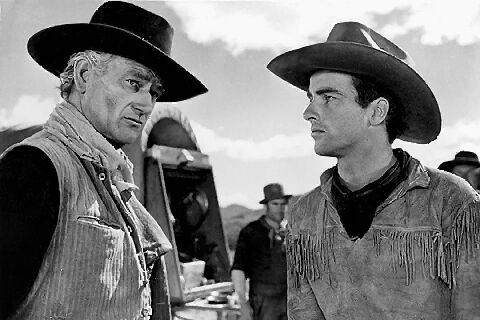#638 - Star Wars: Episode III - Revenge of the Sith George Lucas, 2005 
During an interplanetary conflict, a Jedi knight is forced to choose between his rigidly dogmatic order and a seemingly benevolent politician as he works to prevent his tragic visions from coming true.
Die Hard. Casablanca. Midnight Cowboy. 12 Angry Men. Alien. The Incredibles. Planet of the Apes. Ghost in the Shell. If you're wondering what all these films have in common, it's that when I first decided to contribute a Top 100 thread to this website about ten years ago I not only included those films at the bottom of my list but also managed to rank a certain film just above all of them. Take a wild guess what that film was...Aside from taking my relative youth and inexperience into account, it would naturally be easy to overrate
Revenge of the Sith after taking into account its two predecessors, the colourfully fluffy
The Phantom Menace and the dully inconsistent
Attack of the Clones. As if knowing what it's got to compensate for, the film starts by plunging audiences into the midst of a massive space battle, once again following Jedi knights Obi-Wan Kenobi (Ewan McGregor) and Anakin Skywalker (Hayden Christensen) as they launch a rescue mission for the republic's chief executive, Chancellor Palpatine (Ian McDiarmid). After completing the mission, Anakin learns that his true love Padmé (Natalie Portman) is expecting a baby, which leads him to have all sorts of troubling visions that portend a future in which she dies. Willing to do anything to counter the possibility of these visions coming true, he allows himself to fall under the sway of the affable Palpatine, who promises him the ability to avoid such a fate.
The whole plot of Anakin enacting what would turn out to be a self-fulfilling prophecy initially struck me as compelling tragedy, but looking at it now does make it seem quite simplistic. To the film's credit, it doesn't completely mess things up in this regard, but it's still underwritten enough to make Anakin seem like a gullible dope more so than a desperate man being twisted into another person entirely (though this might have something to do with Christensen's performance as well). The other narratives running throughout the film also feel like they exist to pad out the narrative - Obi-Wan and Yoda's journeys to snuff out pockets of villainous rebels are sporadically entertaining (especially in the former's case), while Palpatine's plots to consolidate his power are thankfully pushed into the background for the most part. At the very least, I'm grateful for it being a little tighter in every regard than
Attack of the Clones. Though this is understandably intended to be the darkest of the three prequels, one can't help but marvel at some of the goofier attempts at drama, such as the incredibly serious use of the word "younglings" or the pointed exchanges that take place during the film's fiery climax.
Revenge of the Sith earns the distinction of being the best
Star Wars prequel, even if it does so mainly by default. At the very least, its most memorable moments are pretty evenly split between the genuinely entertaining and the unintentionally silly, with the former just edging out the latter. The split between good and bad also exists on a technical level, as this film does feature considerable ambition right out of the gate with its lengthy opening sequence involving a space battle that segues into a virtual tower siege and at least manages to outdo that with the climatic lightsaber duel on a damn lava planet. Those are the moments that define
Revenge of the Sith for better or worse. It at least provides a somewhat satisfactory conclusion to a collection of films that were admirably independent misfires at best and mindlessly vapid blockbusters at worst (regardless of their connection to one of the most beloved cinematic franchises in existence). In my review of
The Phantom Menace, I pointed out that I couldn't really bring myself to hate that particular movie because of the nostalgia involved, which is a sentiment that applies in greater force to
Revenge of the Sith if only because, well, it is a genuinely better movie.









